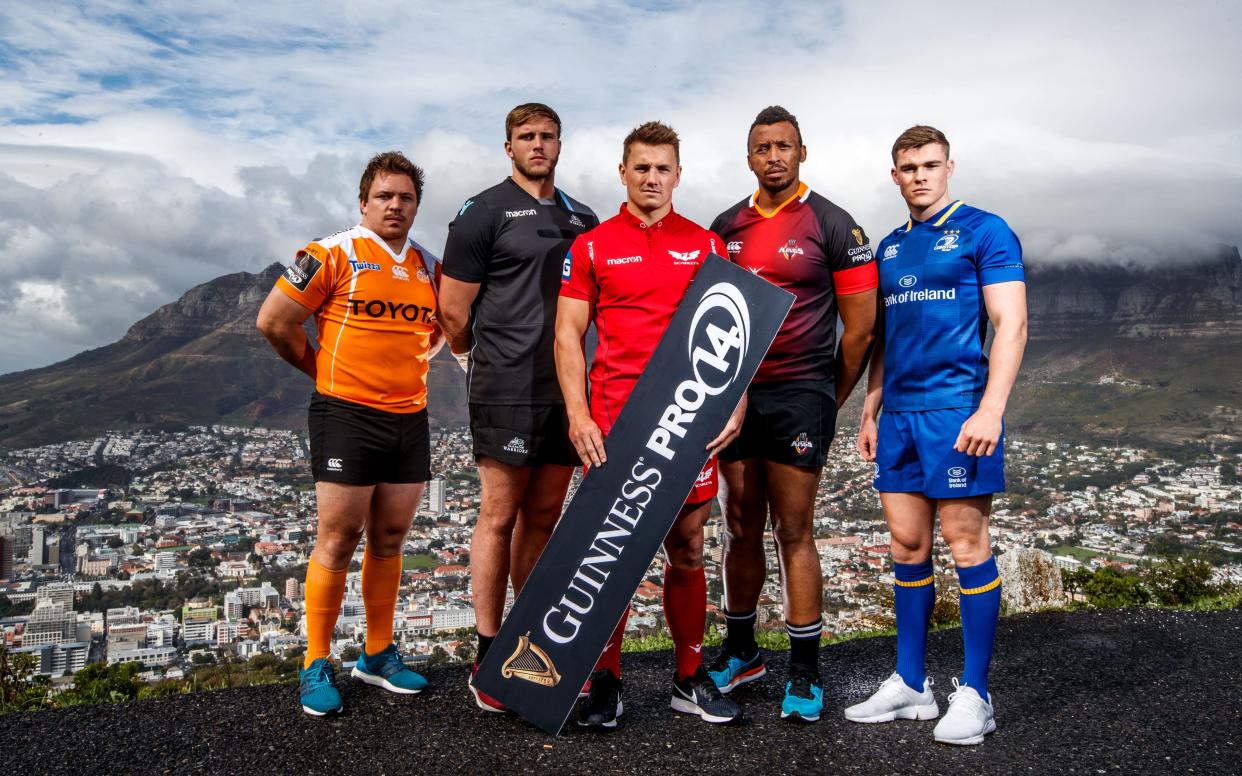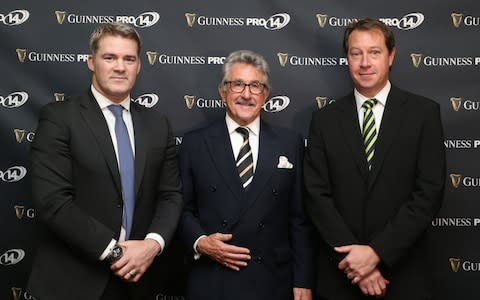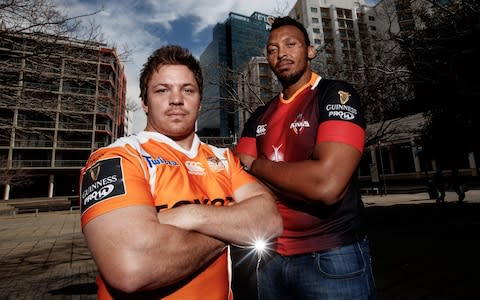Exclusive: South Africa could choose two Test teams for different hemispheres

Jurie Roux, chief executive of the South African Rugby Union, has suggested that adding the Cheetahs and Kings to the Pro14 may lead to the South African national team selecting a radically changed side for future European tours.
Speaking exclusively to The Sunday Telegraph, Roux revealed that because of South Africa’s past struggles to adapt quickly to conditions during their autumn tours of Europe, the Springboks may end up picking a different XV heavily involving players from the two Pro14 sides for those fixtures in the north, compared with the team that takes part in the June Tests at home and the Rugby Championship.
"I can categorically state that we view Pro14 and Super Rugby, in terms of qualification criteria to play for the Springboks, in exactly the same light," Roux said.
"From a rugby point of view, we now have the opportunity to adapt to conditions in the north quicker. The first game of the autumn is really a tough Test match because of not being used to those conditions and the environment.
"Now in terms of preparing our players for the conditions of the north, you might end up seeing two different Springbok sides being selected; one for inbounds (the June Test series) and the Rugby Championship, and one for outbounds (European tours) in conditions that are completely different, and choosing players paced for that."

SARU's ambition is to have eight professional franchises in South Africa, two more than the current total, with four of those playing in Super Rugby and another four in Europe.
"I can promise you that if we had more teams to move [into Europe] at this stage then we would do so. There is a massive interest," Roux explained.
"We envisage two more franchises in South African rugby in the near future with the opportunity to play in the north.
"There are only about three or four potential teams who could really [turn professional], based on the criteria of economic feasibility and sustainability, plus whether they have the support base and quality of players."
Moving the Cheetahs and Kings to the Pro14, which had its official South African launch in Cape Town on Friday, keeps both franchises in top-tier rugby while opening South Africa up to a new market.
Brian O’Driscoll, the former Leinster player now working as a pundit for BT Sport, believes that the exposure of playing in Bloemfontein and Port Elizabeth will also give those players from the European sides rare and valuable international exposure at club level.
“I only ever played down in South Africa twice in my whole career, once with Ireland and once with the British and Irish Lions. You are playing in a different environment,” O’Driscoll explained. In the previous Pro12 as a young player, you might have not travelled any further away than Edinburgh or Zebre.
“There is only so much experience you can get playing in Europe.
“I remember playing in Bloemfontein and it was a hostile environment. Going down there and experiencing that, on a hard pitch, it was a very physical, confrontational and different style of rugby.”

The Australian Rugby Union confirmed on Friday that the Western Force’s Super Rugby licence would be discontinued, ending a prolonged period of uncertainty and sparking understandable anger in Perth as the Force join the Cheetahs and Kings on the Super Rugby scrapheap.
The announcement was followed by ARU chief executive Bill Pulver confirming he would step down, with the process of axing a side originally billed to take only 48-72 hours instead of the resulting four months.
Roux now hopes the removal from Super Rugby of the three franchises can breathe life back into the flagging competition, as the tournament reverts to 15 sides from a convoluted 18-team structure.
“You cannot have a team that is lying ninth [the Brumbies] qualifying for the semi-finals at home. It is just not acceptable on any level. You can only fool the punters for so long, and people will vote with their feet and their eyes,” Roux said.
“We are practical about it. It was not pleasant. You see alarms going off everywhere.
“Sport goes in cycles and we got [the expansion] wrong. We tried something for two years and it has not worked. Now we are trying to fix it.”
BT Sport is the only place to watch rugby from the Aviva Premiership, European Champions Cup and Challenge Cup where the best teams from domestic and European rugby go head to head. For more information, visit http://sport.bt.com/ rugby

